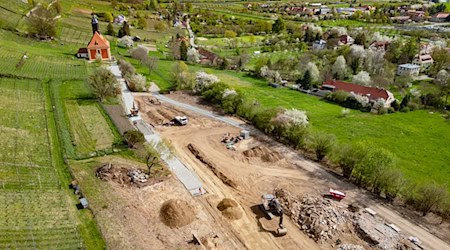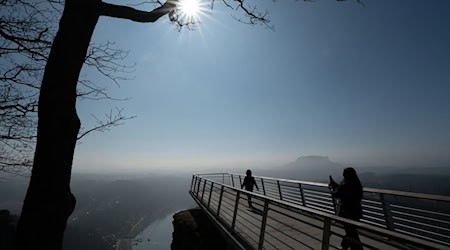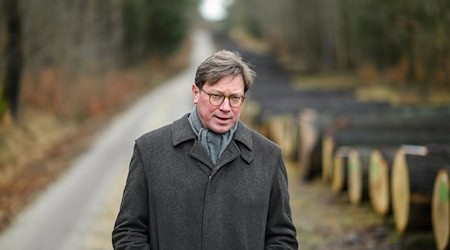Following the political change of course in dealing with the predator, wolf expert Eckhard Fuhr advises a determined protective hunt for problematic packs in order to protect livestock grazing. On the other hand, it would be completely nonsensical to shoot wolves after a general hunting quota, Fuhr told the German Press Agency in Berlin. This would "only bring disruption to the situation".
"On the other hand, in certain areas where a kind of sheep-eating mentality is spreading among wolves, you have to intervene at a very early stage and shoot there too. It may also be necessary to shoot a lot of wolves and possibly make an entire region wolf-free for a while," says Fuhr. "That won't be the case forever. There will be new wolves."
EU states want to lower the protection status of wolves
Representatives of the EU member states voted in September, with Germany voting in favor of lowering protection - from strictly protected to protected. This paved the way for a procedure to regulate the population of the controversial predator that preys on grazing animals. Practical questions are still being clarified.
The change of course shows that the assumption that the problem can be brought under control through ever better herd protection has obviously not been confirmed, according to Fuhr, who is also the author of the book "Rückkehr der Wölfe" (2014). Rather, it appears that herd protection is becoming less effective over time.
An example of this is the east of Brandenburg, where several hundred kilometers of fences have been erected in the landscape due to swine fever, but the wolves have managed to get past them. "As a result, only the combination of fencing and livestock guarding dogs provides a certain degree of security. However, this is a method of livestock protection that only large farms - professionals - can really maintain," says Fuhr.
Multiple federal states have a particularly high wolf population
In Germany, Brandenburg, Lower Saxony and Saxony are federal states with a particularly high wolf population, with Brandenburg also occupying a leading position in Europe with around 60 proven territories in terms of area. Fuhr, who also heads the wolf working group at the Brandenburg-Berlin Ecological Hunting Association (ÖJV), recently cited an average of 500 to 600 wolves in the federal state.
"It would be important for all wolves that are not deterred by the reasonable and agreed herd protection to be shot quickly and efficiently," says Fuhr. "This is not the shooting of a few individuals, but a kind of protective hunt that must take place in parallel with the necessary herd protection so that this herd protection remains effective."
So far, individual so-called removals have often been stopped by administrative courts. Livestock farmers and parts of the population in rural areas are very upset.
"Absurdities" in dealing with wolves
Fuhr refers to the case of a female wolf on the Lower Rhine ("Gloria"), who, as a very productive mother, had raised "a whole dynasty of sheep eaters". "The fact that she is still alive and that no action has been taken is one of the absurdities produced by the legal regime of "strict protection" for wolves," he says. On the other hand, there are completely inconspicuous packs. Such differences in behavior have also been documented in Switzerland.
"In the end, it is much more important for biodiversity that we have grazing animals in the landscape than that wolves run around in the landscape," says Fuhr. However, there could now be "major disappointments". "The claim that comprehensive hunting and a reduction in overall numbers, as demanded by the farmers' association and hunting association, will make life easier for graziers is not correct," he warns.
Are professional wolf hunters the answer?
The Brandenburg Hunting Association, on the other hand, recently called for a fixed hunting season for wolves and would also welcome the introduction of an upper limit for the animals.
Fuhr, on the other hand, warns against releasing wolves for shooting in so-called driven hunts. These hunts are used to shoot and regulate roe deer, red deer and wild boar without any protests. "If the wolf were to be put on the shooting list there, this peace would be over," warns Fuhr. According to him, the best thing would be "to have professional forces, wolf hunters, to do this, but you have to be realistic". This is not provided for in the hunting system.
Copyright 2024, dpa (www.dpa.de). All rights reserved










